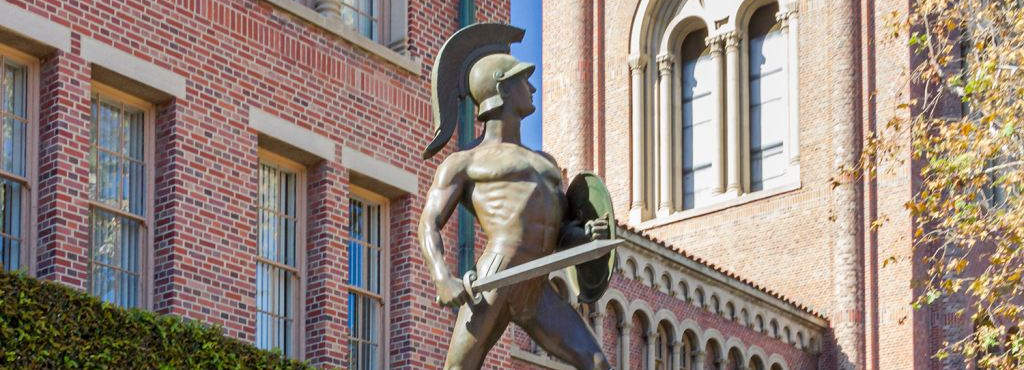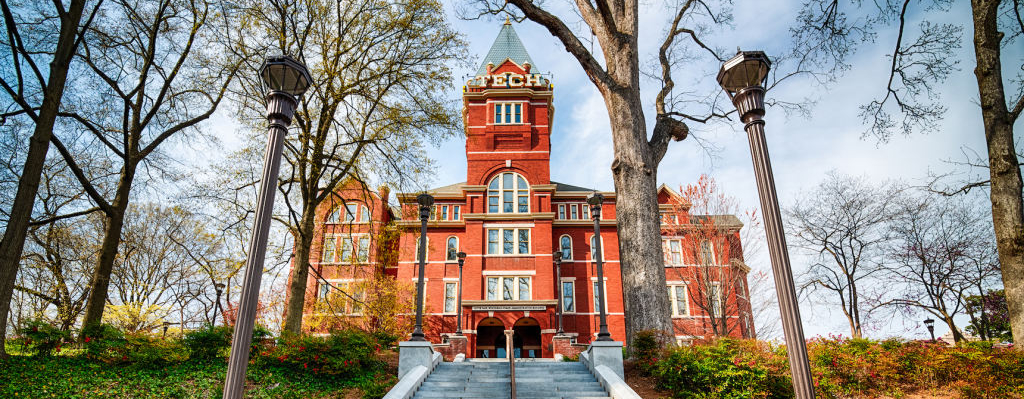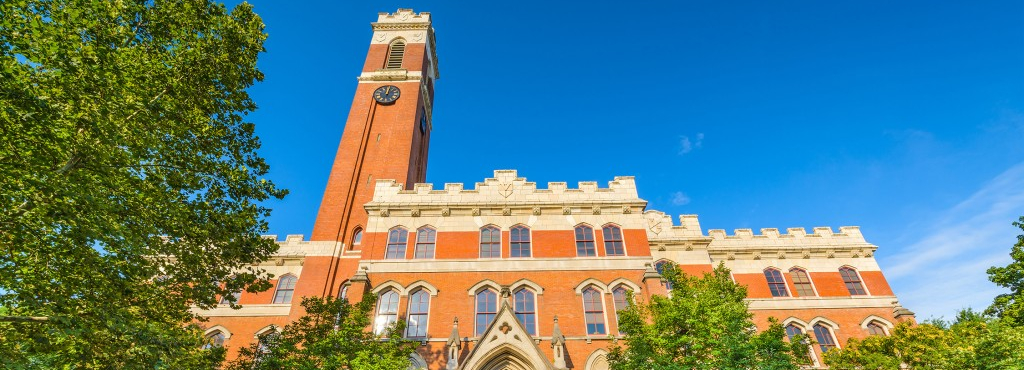IvyWise On-Demand: University of Southern California: How to Get in and What to Know
Are you considering applying to the University of Southern California (USC)? Whether you are beginning the college search process or finalizing your list, this is a great opportunity to learn all about the university from IvyWise college admissions counselors James, former Senior Assistant Director of Admissions at USC, and Tasha, former Admissions Officer at USC.
Watch Now
The University of Southern California — or USC, as it’s best known — is a top research university and one of the most selective schools in the country. Located in sunny Los Angeles, California, it’s been a pioneer in academic and research initiatives since its beginnings in 1880.
If you dream of being a Trojan, you’ll have stiff competition for admission. However, hard work and thorough preparation can help you stand apart from your peers.
How to Get into USC: Table of Contents
- When to Apply to USC
- How Hard Is It to Get into USC: Early Prep
- How Do You Actually Get into USC: The Application
- USC Class Profile
- What Makes USC Unique?
- USC FAQs
When to Apply to USC
Before applying to USC, it’s important to understand the different admissions options and timelines offered. High school seniors must decide whether to apply in the early or regular admission rounds and stay on track to submit all their materials on time.
USC Deadlines
USC’s deadlines may vary by a day or two from year to year. Students applying to USC for the 2025-26 admissions cycle must submit their materials by these deadlines:
Early Action:
- November 1: Admissions and merit scholarship applications
- December 15: Financial aid materials
Early Decision (Marshall School of Business only):
- November 1: Admissions application and financial aid materials
Regular Decision:
- December 1: Admissions and merit scholarship applications for majors requiring a portfolio or audition
- January 10: Regular Decision applications
- February 1: Financial aid materials
Students applying Early Action can expect to receive a decision in mid- to late- January. ED applicants will receive a decision by December 15. All RD notifications are released by April 1.
Early, Rolling, and Regular Decision
USC offers three application deadlines: Early Action, Early Decision (only for business school applicants), and Regular Decision. However, it’s still important to understand the key differences between the different application options, including those that USC does not offer.
Early Decision (ED) and Early Action (EA) are early application deadlines offered by many colleges and universities. Unlike Early Action, Early Decision is binding — if you are admitted, you must enroll and withdraw all other applications. Consider applying EA or ED to USC if it is your first choice and your application is strong enough without submitting senior grades.
Regular Decision is the most common admissions option and typically has the largest applicant pool. Students often choose this option if they need to include senior year fall grades with their application.
Finally, some schools offer rolling admissions. This option does not have strict deadlines. Instead, universities continue accepting applications until they meet their enrollment capacity. This often means students can apply any time from September to May, though applying earlier offers a better chance of admission. USC does not offer this option.
Waitlisted Applications
Many colleges and universities waitlist qualified applicants in the Regular Decision round because they do not have space for them in the incoming class. However, USC is one of the few highly selective schools that does not have a waitlist for undergraduate admissions. Students who apply RD will either be denied or granted admission.
Deferrals
Students who apply Early Action to USC may be admitted or deferred. If you are deferred, it means that your application will be evaluated during the Regular Decision round. You may wonder what to do if you get deferred. Each school has different policies regarding deferrals. USC only accepts an EA Deferral Form and mid-year transcripts from deferred students.
How Hard Is It to Get into USC: Early Prep
USC has always been a selective institution, as the admission rates from the past four cycles show:
- Class of 2026: 11.88%
- Class of 2027: 10.01%
- Class of 2028: 9.81%
- Class of 2029: 10.4%
USC looks at your academic record and extracurricular involvement for all four years of high school, so it’s important to get an early start to maximize your chances of admission.
Build Your Profile
You may be wondering what does USC look for in applicants? USC is excited about academically rigorous students who have interdisciplinary interests and passions. While academic factors — such as GPA, course rigor, and test scores — are the most important elements that USC evaluates, they also have other considerations, like extracurriculars and non-academic interests. Your application should demonstrate a sustained commitment to developing your interests and leadership skills both in and out of the classroom.
Visit the Campus
Located in downtown Los Angeles, USC is perfectly positioned for those who want to be in the heart of the city. But you won’t know for sure if USC is right for you without visiting the campus. It’s important to plan your visit well in advance so you can register for an official campus visit through USC Undergraduate Admission. You can register for an information session and/or an academic department session as well as a student-led tour of campus. Prospective students can also attend the Discover USC Open House, which is scheduled in the fall.
Can’t make it to campus? USC also offers an immersive virtual tour and other online programming.
Connect with a Student
If you come to campus, you have two options for connecting with students. You can find student ambassadors at the Admission Center who are happy to answer your questions. These ambassadors also lead campus tours, so take the opportunity to ask your tour guide about their experience as a USC student.
Learn About Any Student Experiences
If you can’t visit the USC campus in person, you can learn more about student experiences through the admission resources page, which features video interviews from current USC students. The Daily Trojan — USC’s independent student newspaper — is also a great source to learn more about life on campus.
How Do You Actually Get into USC: The Application
Students will use the Common Application to apply to USC. Your application will consist of both hard and soft factors, which USC will evaluate under the holistic review process. Your academic record carries the most weight; however, the soft factors are what set you apart from peers with similar academic records.
GPA Requirements
Like most colleges, USC does not have an official minimum GPA requirement for admission. However, you can look at the admissions data for the most recent class to see the average GPA — the best source for this information is the Common Data Set. For the class of 2027, the average GPA was 3.86.
SAT and ACT Scores
USC is currently test-optional; however, submitting a strong test score will only help your chances of admission. The middle 50% of students in the class of 2027 had a score range of 1450-1530 on the SAT and 32-35 on the ACT. If you have scores within this range, you should submit them — keeping in mind that USC superscores both the ACT and SAT.
Personal Statement
Your personal statement is one of the most important soft factors of your application, since it gives the admissions committee insight into who you are outside of academics. You have seven Common App essay prompts to choose from, which provides an opportunity to write about almost any aspect of your life. Focus on being authentic — the admissions committee wants to know the real you.
Essays
In addition to your personal statement, you will be expected to respond to one or more supplemental essay prompts if you’re applying to certain undergraduate colleges or schools. These prompts will appear in the Common App when you choose your major. USC does not have a supplemental essay prompt for all applicants.
Letters of Recommendation
The USC letter of recommendation is another soft factor that helps the admissions committee learn more about you. USC requires one letter from either a teacher or your school counselor. If a teacher writes your recommendation, it should be someone who taught you in a core subject either junior or senior year and can speak to your academic performance and contributions to the classroom. Students applying to the School of Cinematic Arts are required to submit two recommendation letters.
Admission Interviews
USC does not offer interviews for undergraduate admission. However, prospective students have a dedicated admission counselor who can answer any questions they may have. It’s also worth noting that, while interviews are not part of the admissions process, students applying to performing, visual, and fine arts programs may be required to submit a portfolio or complete an audition.
Contribution to the USC Community
USC admissions wants to admit students who will make an impact on the campus community in their own unique way. If you’re a USC hopeful, it’s important to showcase your academic and extracurricular interests and achievements in your application. This gives the admissions committee an idea of how you contributed to your school and the broader community — and how you might continue these contributions on USC’s campus.
USC Class Profile
Recent class profiles for USC can provide you with valuable information about admissions outcomes, class size, and the diversity of the student body. Here are just a few key statistics for admits to USC for fall 2025. Out of the approximately 83,500 applications USC received, about 8,700 students received offers of admission.
What Makes USC Unique?
USC is a major, multi-faceted research university in Southern California. The university boasts rigorously strong programs and opportunities in fields as varied as engineering and cinematic arts. A future star engineer or the next Steven Spielberg could be among your peers. There aren’t too many places like that!
The USC School of Cinematic Arts is one of the best film schools in the world, providing opportunities for future Hollywood pioneers and stars. Thanks to USC’s academic flexibility and commitment to interdisciplinary learning, students from any school or college can take classes at the School of Cinematic Arts — and vice versa.
The USC Museums have more than 25,000 objects in its collection. These works are displayed at the Pacific Asia Museum, Fisher Museum of Art, and across campus. The main campus also features 12 historically significant buildings. Across the street is Exposition Park, featuring several cultural attractions.
A discussion of USC wouldn’t be complete without mentioning Trojan athletics. A part of NCAA Division I, USC moved to the Big Ten conference in 2024. The USC vs UCLA rivalry is a big part of the campus culture. Additionally, USC has a long Olympic heritage, producing the most medalists and gold medalists of any U.S. university. The Los Angeles Memorial Coliseum — USC’s football stadium — was the centerpiece of the 1932 and 1984 Olympics. The Olympic cauldron is lit for every home game.
As you might imagine, USC boasts a number of notable alumni, including Neil Armstrong, George Lucas, Will Ferrell, John Ritter, Forest Whitaker, Shonda Rhimes, America Ferrera, and Lisa Leslie.
USC FAQs
Where is USC located?
USC is located in Los Angeles, California.
What is USC known for?
In addition to being a world-class research university that attracts students from around the world, USC is known for its football program and school spirit. USC has one of the finest cinematic arts programs in the world and is also well-known for its medical school.
How many students are at USC?
The current student population is around 47,000 — 21,000 undergraduates and 26,000 graduate and professional students.
What GPA do you need to get into USC?
While USC does not require a specific GPA for admission, the average high school GPA for the class of 2027 was 3.86.
What is the acceptance rate for USC?
The acceptance rate at USC was 10.4% for fall 2025 — making it a reach school for many students.
Admission Counseling
To gain admission to a competitive university like USC, most students could use a little help. A college admissions counselor specializes in guiding students through the entire admissions process, from building a competitive application strategy and balanced college list to brainstorming and writing strong essays and supplements.
At IvyWise, all our counselors have direct admissions experience at some of the most highly selective schools in the U.S., so they know exactly what it takes to stand out. Counselors that are accredited, experienced, and knowledgeable in the field will provide key advice to set applicants up for success. Schedule an Initial Consultation and take the first step toward becoming a Trojan.
Get Started




